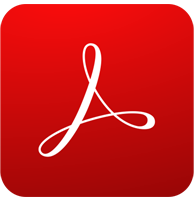Internship
Who is Internship for?
Those who have completed Phase B as well as the inter-phase work, and have obtained a clearance from the Dean (Professional Development). Completion of logs, documenting the work done during inter-phase B is essential for internship/ co-facilitation phase. The Internship phase will consist of two stages:
Stage I: Internship
One week of internship, working with a professional member at a National Event to develop and sharpen skills of T-Group facilitation: observation, diagnosis and practising interventions. This lab is for practice and will not be considered nor counted for the number of co-facilitation labs prescribed for grant of professional membership.
Stage II: Co-facilitation
The co-facilitation requirements towards applying for professional membership will begin after Stage I. Stage two will have a minimum of 3 weeks of co-facilitation experience with at least one at the National Event of ISABS.
The first week of Internship will focus on:
- Examining the beliefs, values and processes of T-Group facilitation
- Examining one's understanding of "Here and now" vis-a-vis "there and then" – Valid Information and Informed Choice.
- Democratic processes vis-à-vis facilitator centric processes in the group
- Understanding one’s own location/s and styles as facilitator
- Role, Boundaries and Mission (Purpose/ Primary Task)
- Exploring and experimenting with alternative styles of interventions
- Diagnoses of processes and conceptualizing interventions.
- Sharpening one’s skills to make group-level interventions
- Individual focused and group focused styles of intervention
Learning Agenda
- Differentiate learning in a T group from other types of learning
- Familiarize and integrate the values of T group in the learning process
- Learn to use thoughts and feelings in self as data for intervening in the group
- Sharpen understanding of processes at self, interpersonal and group level
- Enhance ability to articulate hypotheses and make interventions at intrapersonal, interpersonal and group levels
- Understand the value and need for clinicking `spaces for dealing with self and role related issues
For every co-facilitation a feedback report (which is usually prepared for the participants) shall be prepared by the Facilitator and sent to the national office. The candidate shall have the copies for discussion with Dean-PDP while making application for professional membership along with a minimum of three recommendations from professional members who worked with him/her during this stage. The application shall be made to the President through the Dean-PDP. Dean-PDP after discussing with the President, will recommend the participant to the Board for admission. The participants in the Professional development stream are requested to keep their logs and other connected papers with them so that these may be available for referrals to prepare the note for admission of professional members.
The first Co-Facilitation Lab (stage I) will be purely for learning in this new role and will not be open for obtaining a Letter of Recommendation.
- At the end of each co-facilitation lab, the Intern will need to submit a log of the lab. The Logs need to be submitted within 2 months of the conclusion of the lab and reviewed before attending the next co-facilitation.
- A time gap of at least 4 months between co-facilitations must be maintained to enable needed reflection, writing, review, reading and integration of learning from the lab experience.
- Before applying for professional membership, a candidate must have published at least two of the above logs in the ISABS newsletter ‘Here & Now’





